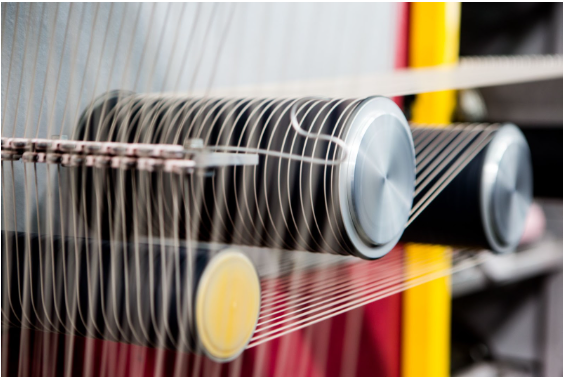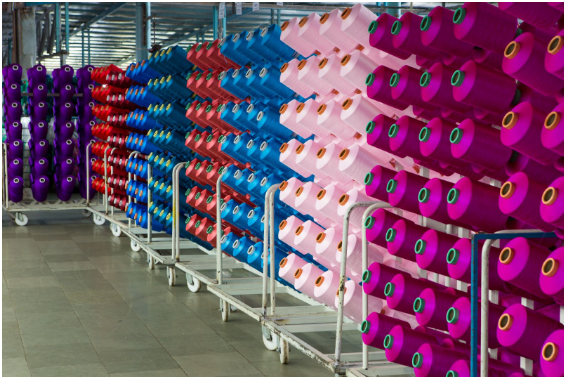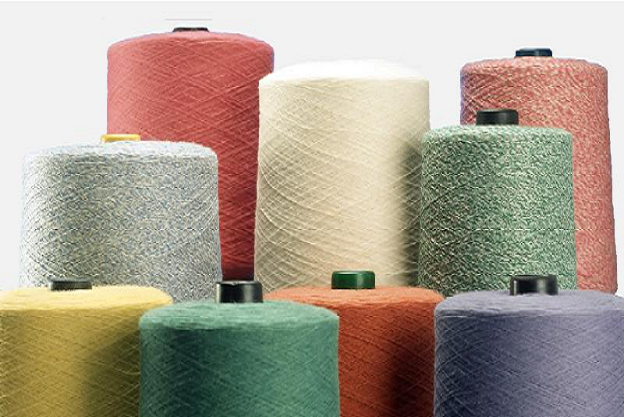Polyester and nylon yarn are used across industries. Both are known for their resistance properties, strength and longevity. However, nylon is comparatively more expensive to manufacture than polyester, yet polyester is more flexible in catering to the specific needs of industries than nylon. The polyester yarn strength is perfect for industrial sectors such as automobiles, interior, transportation, construction and others, while nylon is ideal for shoes, clothing, furniture, etc.
Difference between polyester and nylon yarn
To understand the difference between polyester and nylon yarn, we have compiled their uses, properties and other factors. Let’s explore the difference between the two types of yarn.
Touch and feel
Polyester is rougher to touch than nylon, as the latter was conceived as an alternative to silk. This makes nylon softer, silkier and even shinier than polyester. However, in recent years, the feel of polyester has significantly improved by newer manufacturing methods, giving it a softer and more cottony feel. Yet, for all of its improvements, nylon remains the softer yarn.
Durability
Compared to polyester, nylon works out to be the stronger yarn and even stretches more. This makes nylon garments more long-lasting and durable.
Abrasion resistance
While nylon may last longer, it is not as resistant to abrasions as polyester. Nylon garments develop pilling faster and easier, making them wear out quicker than polyester garments.
Dyeing process
Different dyes are used for polyester and nylon yarns. Disperse dyes are used for polyester, which the yarn absorbs better and faster compared to nylon yarns. Nylon yarns are dyed using acid dyes, which are absorbed unevenly and fade faster under UV rays.
Reaction to heat
Since polyester needs more heat to absorb the dyes thoroughly, it does not work for garments with sublimation or on digital prints, whereas heat transfer printing for nylon yarns is more delicate.
Reaction to water
Nylon has a tendency to absorb water, which does not make it ideal for athleisure, activewear or rainwear. On the other hand, polyester is less absorbent and even repels water, making it ideal for sports garments that tend to absorb sweat more than regular garments.
Application
Polyester is used in coated fabrics, conveyor belts, safety belts, plastic reinforcements, pillows, comforters, upholstery, etc. Nylon is applicable for sarees, kurtis, lehengas, lingeries, swimwear, carpets, drapes, furniture clothing, home decor accessories, etc.
Advantages of nylon yarn
- Has high elasticity
- Is more durable
- Resists abrasions
- Resists water
- Resists mould and mildew
- Resists stains
- Works for dog beds
Disadvantages of nylon yarn
- Fades faster in sunlight
- Is sustainable but not recyclable
- Shines too brightly
- Tends to generate static electricity
Advantages of polyester yarn
- Is highly durable
- Resists abrasions
- Dries quicker
- Has high elasticity
- Resists mould and mildew
- Resists fading
- Can be dry cleaned
- Is recyclable
Disadvantages of polyester yarn
- Can be non-breathable
- Gets stained by oils
Polyester vs nylon yarn
Although both yarns have excellent strength, their uses are starkly different. Additionally, nylon can be mixed with other fibres, even polyester, to multiply the strength, durability, resiliency and performance. For instance, both yarns can be combined for carpets, so they are well-maintained despite high traffic. Otherwise, nylon is mainly ideal for clothing and polyester for industrial usage.
AYM Syntex, a leading manufacturer of yarns, provides world-class multipolymer yarns. We use leading technologies to manufacture yarn so that you can create top-quality products. We offer a wide range of shades and innovative yarns that cater to the specific needs of all industries. To level up your product quality, connect with us.
Also Read:
i.Benefits of Polyester Yarn
ii.Key Characteristics of the Polyester Filament Yarn




